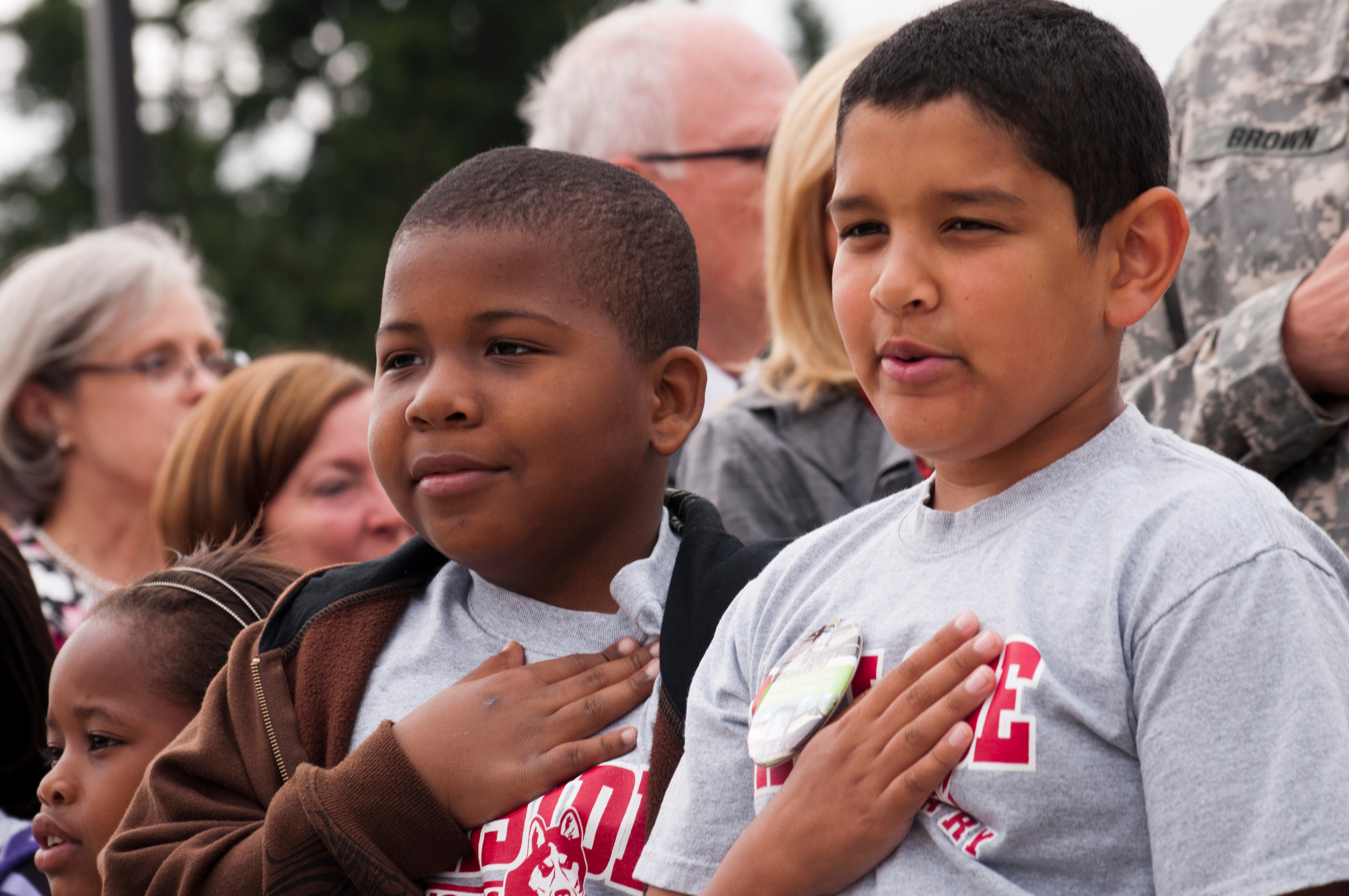Stumping for the Pledge of Allegiance
From library boards to Congress, meetings of governing bodies typically begin with officials and audience members standing and reciting the now 31-word Pledge of Allegiance.
However, according to a survey conducted by the Long Island Press one-fifth — 22 of 97 — villages in Nassau and Suffolk counties do not recite the patriotic oath at the beginning of their meetings. Five of the 22 cited are in the Five Towns: Hewlett Bay Park, Hewlett Neck, Hewlett Harbor, Lawrence and Woodsburgh.
The survey reported that officials from those five villages said, “they do not regularly hold the pledge at their meetings.” No government entity or resident is required by law to recite the pledge, but state law does mandate the pledge be recited in classrooms at the start of each school day.
In 1887, George Balch, a former colonel, who was then serving as the principal of a free kindergarten in New York City for immigrant and underprivileged children wrote a salute to the U.S. flag. (See sidebar).
Five years later, James Upham, the nephew of Daniel Ford, who published the Boston-based weekly The Youth’s Companion, asked Francis Bellamy, a minister who was considered a socialist, if he could improve on Balch’s creation.
Bellamy wrote his version and it remained unchanged until 1923. To codify flag etiquette and help immigrants assimilate, the U.S. military and nearly 70 other entities organized a National Flag Conference. To encourage immigrants to understand the difference between their homelands and their adoptive country, organizers revised the pledge from “I pledge allegiance to my flag…” to “I pledge allegiance to the flag of the United States.” The words “of America” were added in 1924.
During World War II, President Franklin Roosevelt signed a joint congressional resolution incorporating the pledge into the 1923 code. Also, because the Nationalist Socialist Party (Nazi) sieg heil (hail victory) salute resembled the Youth’s Companion gesture when the pledge was recited, another presidential resolution called for civilians to hold their right hands over their hearts; active duty military personnel would salute.
In response to the perceived Communist threat, President Dwight Eisenhower urged Congress to add the words “under God,” creating the 31-word pledge, in 1954.
Lawrence officials said they don’t know why the pledge has not been recited at meeting. “We will be happy to institute that at the July meeting,” said Mayor Alex Edelman. That date is July 13.
Being a board member for more than a decade and attending village meetings for over 14 years, Woodsburgh Mayor Lee Israel said, the pledge was never recited. “Not sure why, but now that you bring it up I think we should,” he said. “ [It] will be instituted at the next board meeting and from now on.” The next meeting is on June 26.
Hewlett Harbor Mark Weiss said that the pledge “is an important American tradition,” and “signals affirmation of one’s devotion to our country.” He noted that to his knowledge the village meetings have never begun with a recitation of the pledge, and it is only one of many ways a person can show their patriotism.
“The mayor and trustees each recite oath of office at the onset of their terms, and at that time commit to upholding the laws and principles of our local and national governments,” Weiss said. “But of greater relevance, each and everyday, the trustees demonstrate, by their selfless actions, their commitment to the village, and by extension to our country.”
As mayor of Hewlett Bay Park for 15 years and a trustee and Zoning Board of Appeals member, Steve Kaufman said he doesn’t ever remember the pledge being said at those meetings. “I go to a lot of meetings and there are a lot of boards,” he said, “some do and some don’t. It’s one of those things that are more a custom than a rule.”
Ross Epstein, the mayor of Hewlett Neck, said traditionally the village has never recited the pledge, but he is not opposed to doing so as he remembers having done so in elementary school.

 49.0°,
Mostly Cloudy
49.0°,
Mostly Cloudy 




